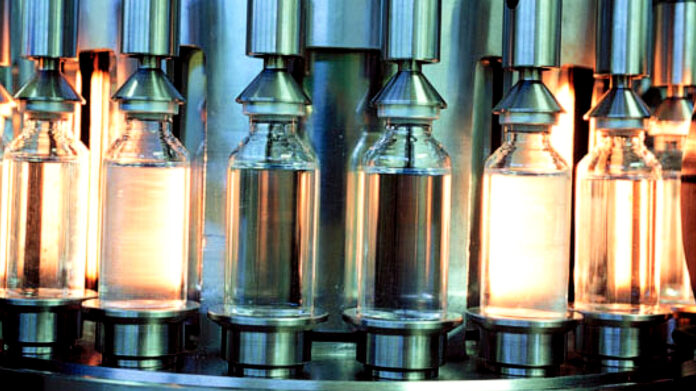Nokia has proclaimed a private 5G trial at a production plant at the Institute of Immunobiological Technology (Bio-Manguinhos) in Rio de Janeiro in Brazil as a connectivity springboard to enhance vaccine manufacturing. Bio-Manguinhos produces active pharmaceutical ingredients (APIs; not those ones) for vaccines for mumps and measles, among other things. The new solution “could prevent waste of more than two million doses of immunizers,” reckons the technical team at Bio-Manguinhos – if the new private 5G network helps to prevent all existing “interruptions” in their production, as it might. The 5G project appears to have the OT support to scale.
The proof-of-concept (PoC) at Bio-Manguinhos was part of the Brazilian government’s so-called MetaIndústria project, organised by the Brazilian Industrial Development Agency (ABDI) in partnership with local system integrator SPI Integração de Sistemas to boost the use of Industry 4.0 technologies in Brazilian enterprises. In January, the government set out ‘mission four’ of its ‘new industrial policy’ to “digitally transform 90 percent of all digitised Brazilian industrial companies”, and to “triple the share of national production in new technology segments”. The 90 percent target is a jump on a figure of 23.5 percent, today, apparently.
The government wants to put technologies like “augmented reality, artificial intelligence, the internet of things, and digital twins” into the hands of industrial managers, said Nokia. The Oswaldo Cruz Foundation (FIOCRUZ), a scientific biological research institution based at Bio-Manguinhos, presented the use case to ABDI for the MetaIndústria project. Rockwell Automation was also involved, along with local industrial automation outfit EDGE Brasil and local system integrator N&DC. Fernando Serva, project coordinator at Bio-Manguinhos, said the focus was to monitor the “rotation of the roller bottles” containing the biological materials used to produce the APIs.
These ingredients (APIs) combine in a triple viral vaccine for measles and mumps (and possibly rubella?). Serva said: “When the rotation is interrupted for any reason, the entire production of viruses intended for a specific vaccine is compromised, resulting in a reduced yield, financial losses, loss of raw materials, and even entire batches.” The team at Bio-Manguinhos calculates an interruption of the operation of the containers could result in the loss of more than two million doses of API for vaccines, said a statement. Serva said the introduction of private 5G – showing packet latency of just 16ms in the trial, to support real-time monitoring and mobility – “quickly resolved” the problem.
The network was set up on the floor of the production floor. Nokia explained: “Network equipment was installed to establish connections with other devices… on the lower floor, inside a greenhouse room… for storing and processing raw materials. The challenge was to overcome the physical structure of the room, which is entirely clad in stainless steel.” Existing programmable logic controllers (PLCs) were upgraded to 5G. This enabled “successful data flow where other wireless technologies fail” and “real-time information exchange [about] the manufacturing process”. Data about the movement and condition of the containers was made available in an IoT dashboard on the 5G network.
There was a mobility aspect, as well – apparently associated with ‘roller table equipment’, presumably a reference to the transportation of the containers around the production plant. Eduardo Silva, account manager at EDGE, commented: “Extracting key performance indicators from the operation of the roller table equipment was a significant challenge as the equipment utilises specific control modules and lacked connectivity for data extraction.” Marcelo Sereno, pharmaceutical sector leader at Rockwell Automation, added: “[By connecting] the roller equipment, data on production and quality, as well as maintenance metrics, could be accessed remotely via the IoT platform.”
The companies also tested a connected worker application for maintenance staff, utilising a smartphone running a cloud-based maintenance management application and a 5G notebook on the private 5G network. A statement said: “Through this setup, it was possible to remotely monitor the initiation of service requests by users and the responses provided by maintenance technicians.” Nokia added: “[The solution] has enabled, in an unprecedented way, the remote and simultaneous monitoring of a portion of the vaccine-API manufacturing process that occurs in an area with challenging connectivity.”
It added: “The success of this experiment will enable Bio-Manguinhos to enhance its productivity in the production of immunizers, avoiding the waste of reagents due to potential machinery failures… This advancement represents a milestone in the application of wireless technology in critical settings.”

